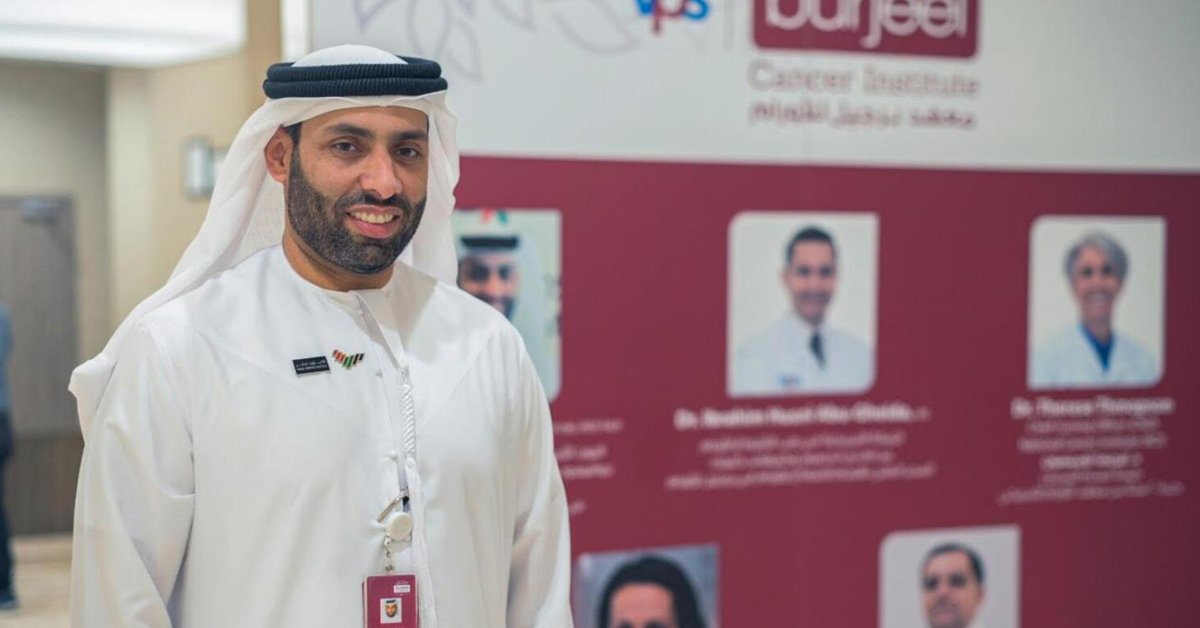Read More: Khaleej Times
January is cervical cancer awareness month, and the UAE is doing its part to provide high-end oncology care services in the country with the help of the UAE National Cancer Registry (UAE-NCR).
Over the past few years, the country has seen a massive decline in cervical cancer, with new cases dropping from 81 in 2015 to just 38 in 2017.
The study was conducted by Dr Humaid Alshamsi, director of oncology at VPS healthcare, president of Emirates Oncology Society and oncology professor at University of Sharjah. He attributed the decline in cervical cancer cases to regular screening, timely diagnosis and HPV vaccination.
What is cervical cancer?
Speaking toKhaleej Times, Dr Alshamsi said that cervical cancer, which falls under gynaecological cancers, occurs in the cells of the cervix.”The common cause of cervical cancer is due to the exposure to human papillomavirus (HPV), a sexually transmitted infection,” he said. “Usually, the body’s immune system prevents the HPV from doing any harm. However, in some cases, the virus survives for years and develops as cancer.” In the early stages, there may not be any noticeable symptoms. But as the cancer develops, Dr Alshamsi said patients may experience vaginal bleeding, discharge or pain in the pelvic muscle.
Raising awareness is the first step
Treatment is decided based on several factors,
such as the severity of the cancer and other health problems. “If the diagnosis is made in the early stage, usually a surgery can be helpful. Surgery, radiation, chemotherapy are the common treatment modalities, with the latter two for treating advanced stage cervical cancers,” said Dr Alshamsi.
Dr Alshamsi also advised residents to create awareness about cervical cancer and stressed the importance of educating the public about the risk of sexually transmitted diseases.
VPS Healthcare Hospitals have been conducting several activities to raise awareness, which includes screening and a vaccination campaign.
“We need to encourage parents to vaccinate their daughters against the cervical cancer if they’re between 15 to 26 years of age. Also, the public needs to be aware of the signs and symptoms of cervical cancer,” Dr Alshamsi said.
Screening procedures
The frequency for repeat screening might vary from woman to woman. Dr Alshamsi said every three years is recommended for symptom-free women between 25 to 49 years and every five years for women between 50 to 65 years.
“Women who are immunocompromised due to a disease or medication must have annual screening,” Alshamsi said.
Papanicolaou test (also called a pap test) is used for screening. Liquid based cytology (LBC) is the accepted standard method for pap test specimen collection. Both are collected from the cervix during the gynaecological examination.
Drop in cases
In addition to regular screening and proactive measures, Dr Alshamsi said the availability of the HPV vaccine has helped reduce the number of cervical cancer cases in the UAE.
“As per a latest study published by the Burjeel Cancer Institute, the cases have dropped dramatically,” he said. The drop in cases is good news for the country, as Alshamsi noted that cervical cancer is one of the leading causes of death among women in the UAE.
“Vaccines can help avert the risk of getting cancer,” he said. “So, it’s highly advisable that women get the vaccine.”
Since 2008, the UAE began providing free HPV vaccination for female students in Grade 11 across all schools in the region. Thanks to the success of this drive, the vaccination programme expanded to other young women aged between 18 and 26.Taking cervical cancer prevention one step further, the Department of Health (DOH) implemented the screening programme for cervical cancer in the same year.


